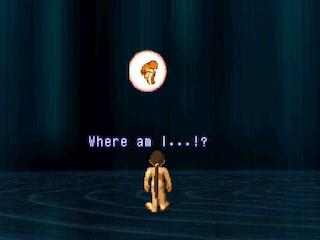The Archetypal Resonance of Classic JRPGs
When I learned about Xenogears, I knew that I had to play it. It was an irresistible package, seemingly tuned to my idiosyncrasies: a Japanese RPG from the 1990s golden era, featuring a famously deep (and convoluted) plot, and with a fanbase that still discusses its underrated status with almost religious zeal.
Despite my excitement, playing through Xenogears proved challenging. I’d forgotten the unique tedium of Playstation 1 RPGs: a story that’s rife with uneven pacing - due in part to production constraints; lots of random enemy encounters; the cadre of frustrating mini games that you needed to beat in order to advance the plot. I became quickly aware of how my short my patience with games had become, and found myself stunned when the timestamp on a save point indicated that only eight minutes had passed since the last time I’d checked my cumulative play time.
The compelling aspects of the game kept me going. The 2D sprites within a 3D world provided a memorable aesthetic that I think aged far better than the purely 3D RPGs from the same era. The music throughout the game is incredible, thanks to an effort by Yasunori Mitsuda that literally cost him his health. And the story legitimately hooked me, right off the bat - featuring a blend of bizarro gnosticism, psychology, and mecha that really only compares to Evangelion. (Xenogears and Evangelion were contemporary productions; I couldn’t find a definitive account, but it would be stunning if there wasn’t some sort of cross-pollination between the projects.)
The early pain ended up feeling like an investment, which steadily paid off as the game progressed. The combat system, initially overwhelming and unclear, developed a compelling dynamism as the characters advanced. Each difficult boss conquered and story point reached felt like an accomplishment; this was a rare, weird game - and working through it felt like a valuable, uncommon expedition.
The story ratchets up at the 11th hour, with a standout “Room of Understanding” that rivals anything I’ve seen in any medium. By trudging through the archaic game design and witnessing the late-game exposition, I felt like I’d earned access to hidden information. Upon finally finishing the game, I excitedly dove into the world of analysis videos and discussions online; I was a newfound convert, ready to partake in the zeal.
Having worked through the lore and oddities in the extended Xenogears universe, I now feel compelled to work through the other great RPGs of the era. In addition to the mainstays (e.g., Final Fantasy 7-9), I’m especially keen to play through the other titles that have been forgotten or underrated, like Chrono Cross and Terranigma.
It’s struck me that this all sort of strange; what exactly am I doing? Why do I feel compelled to undertake these virtual voyages? There’s the reflexive explanation: like with any other artistic medium, it’s worth experiencing the underrated classics. That’s especially sensible in the case of Xenogears - given the industry legends that contributed to the game. You could also point to nostalgia, the desire to feel iconoclastic, or some idiosyncratic motivation to reach backward to this specific realm of obscurity.
But maybe there’s some deeper resonance at play. Suffice to say, the average PS1 JRPG contains a very archetypal story. The plot revolves around the hero’s journey - featuring a protagonist that starts off in meager circumstances, who is then thrust into an epic quest. Along the way, the hero accumulates a ragtag set of friends; some of these friends are standard companions, and others have complex arcs that begin adversarially. Crew in tow, the hero then grows steadily in power and influence, eventually playing a pivotal role in an ultimate clash between good and evil.
The gameplay is similarly orthodox: you start with a hero that’s weak and with few companions; the hero eventually grows, through increasingly adversity, into the archetypal leader that is capable of defeating the ultimate evil. The progression of difficulty in classic JRPGs is sometimes jarring and uneven - but there’s generally a strong correlation between the player’s growing capacity and the level of challenge placed before them.
I think there’s a very specific rhythm to actively playing through an archetypal journey, compared to watching or reading about one. You feel the frustration of the hero’s initial insufficiency; the relief of having a capable companion join you; the accomplishment of finding the way through a seemingly unbeatable battle. It’s a conscious psychological traversal that’s only possible through an interactive medium, and it seems especially distilled in the classic JRPGs.
We’re living through a period of immense change, chaos, evolution - however you prefer to label it. There’s a growing feeling that most every conventional axiom is up for redefinition: consensus morality, the nature of personal identity, our rights and our responsibilities to one another. In a sea of societal flux, familiar mythopoetic stories can feel like a life raft; a girdling force, capable of vividly illustrating the physical and psychological patterns that have endured across millennia, and that will likely continue into the future.
Can games like Xenogears function as narrative psychotherapy? I’ll stop short of making that claim - but I also won’t dismiss the possibility. My humble plan is to continue playing through these classic RPGs, without any sort of clinical precision. I’m not sure what exactly I’m looking to surface, or at what point I’ll reach sufficiency; I don’t think it’s realistic to play every JRPG under the sun.
But for now, this feels like an exercise worth continuing. Hopefully the virtual traversals will give way to some clearer understanding, over time.
Thanks for reading; you can check out my Twitter here



